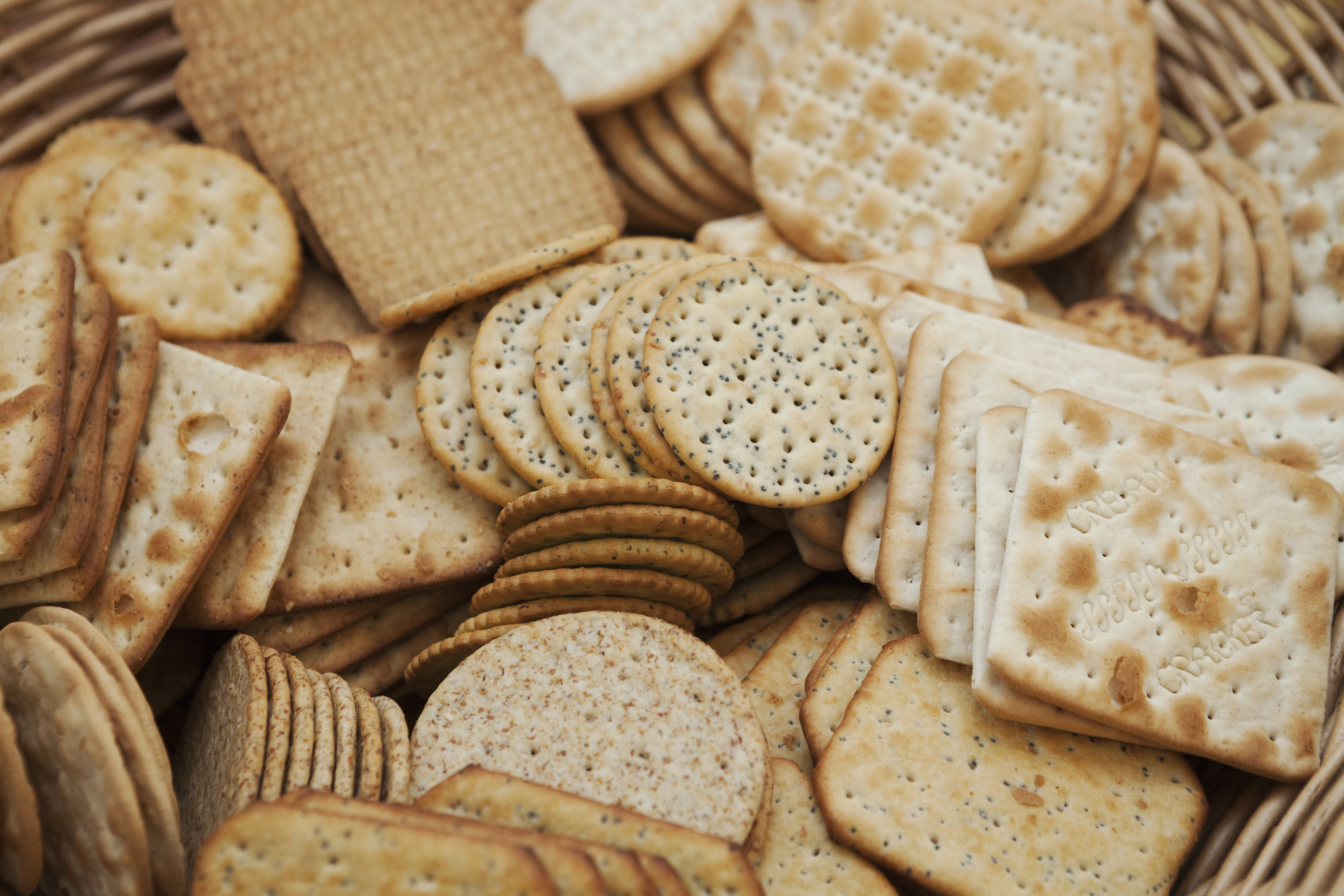Under the Radar: 11 Daily Habits That Secretly Damage Your Gut
Our bodies host an intricate ecosystem of trillions of microorganisms, collectively known as the gut microbiome. This complex community of bacteria, viruses, fungi, and other microbes plays a critical role in our overall health, influencing everything from digestion and immunity to mental health and chronic disease risk. Despite its importance, our gut microbiome often faces silent saboteurs—everyday factors that disrupt its delicate balance without us even realizing it. This article delves into 11 such saboteurs, exploring how they stealthily wreak havoc on our gut health. The gut microbiome's influence extends far beyond digestion. It communicates with the immune system, helps synthesize essential vitamins, and even impacts our mood and cognitive functions. However, the modern lifestyle, characterized by processed foods, stress, and environmental pollutants, often undermines this vital microbial community. By identifying and understanding the silent saboteurs, we can take proactive steps to protect and nurture our gut health.
1. Processed Foods: The Hidden Culprit

Processed foods are a staple in many diets, offering convenience and long shelf lives. However, they often contain additives, preservatives, and artificial flavors that can disrupt the gut microbiome. These components can alter the microbial balance, reducing the diversity of beneficial bacteria and allowing harmful strains to proliferate. The high levels of sugar and unhealthy fats commonly found in processed foods further exacerbate this issue, promoting inflammation and impairing gut function. The impact of processed foods on the gut microbiome is profound. Studies have shown that diets high in processed foods are linked to a decrease in microbial diversity, a key indicator of gut health. This reduction in diversity can weaken the gut barrier, making it more susceptible to pathogens and toxins. Moreover, the lack of fiber in processed foods deprives beneficial bacteria of the nutrients they need to thrive, leading to an imbalance that can have far-reaching health consequences.
2. Antibiotics: The Double-Edged Sword

Antibiotics are powerful tools in fighting bacterial infections, but their indiscriminate use can be detrimental to the gut microbiome. While they effectively eliminate harmful bacteria, they also wipe out beneficial microbes that are crucial for maintaining gut health. This disruption can lead to a condition known as dysbiosis, characterized by an imbalance in microbial populations that can persist long after the antibiotic course is completed. The consequences of antibiotic-induced dysbiosis are significant. It can compromise the gut barrier, increase susceptibility to infections, and even contribute to the development of antibiotic-resistant bacteria. Moreover, the loss of beneficial bacteria can impair digestion, nutrient absorption, and immune function. To mitigate these effects, it's essential to use antibiotics judiciously and consider probiotic supplementation to help restore microbial balance during and after treatment.
3. Chronic Stress: The Invisible Enemy

Stress is an inevitable part of life, but chronic stress can have a profound impact on the gut microbiome. The gut-brain axis, a bidirectional communication network between the gut and the brain, plays a crucial role in this interaction. Stress can alter gut motility, increase intestinal permeability, and affect the composition of gut microbes, leading to dysbiosis. The effects of chronic stress on the gut microbiome are multifaceted. It can reduce the abundance of beneficial bacteria, increase the growth of pathogenic strains, and promote inflammation. These changes can impair digestion, weaken the immune system, and even affect mental health, as the gut microbiome is closely linked to mood and cognitive function. Managing stress through mindfulness, exercise, and adequate rest is essential for maintaining a healthy gut environment.
4. Lack of Dietary Fiber: Starving the Beneficial Bacteria

Dietary fiber is a crucial component of a healthy diet, serving as a primary food source for beneficial gut bacteria. It promotes the growth of these microbes, enhancing microbial diversity and supporting gut health. However, many modern diets are deficient in fiber, depriving the gut microbiome of the nutrients it needs to thrive. The absence of adequate dietary fiber can lead to a decline in beneficial bacteria, reducing microbial diversity and promoting the growth of harmful strains. This imbalance can impair digestion, increase inflammation, and weaken the gut barrier. Incorporating a variety of fiber-rich foods, such as fruits, vegetables, whole grains, and legumes, can help nourish the gut microbiome and support overall health.
5. Artificial Sweeteners: The Sweet Deception

Artificial sweeteners are often marketed as healthier alternatives to sugar, but their impact on the gut microbiome tells a different story. These sugar substitutes can alter the composition of gut bacteria, reducing microbial diversity and promoting dysbiosis. Some studies have linked artificial sweeteners to metabolic changes, including glucose intolerance and weight gain, mediated by changes in the gut microbiome. The effects of artificial sweeteners on the gut are complex and not yet fully understood. However, evidence suggests that they can disrupt the balance of gut microbes, impairing digestion and metabolic function. Opting for natural sweeteners, such as honey or maple syrup, in moderation, or reducing overall sugar intake, can help maintain a healthier gut environment.
6. Environmental Toxins: The Unseen Threat

Environmental toxins, including pesticides, heavy metals, and pollutants, are pervasive in modern life. These substances can enter the body through food, water, and air, posing a threat to the gut microbiome. They can alter microbial composition, reduce diversity, and promote the growth of harmful bacteria, leading to dysbiosis. The impact of environmental toxins on the gut microbiome is significant. They can compromise the gut barrier, increase inflammation, and impair immune function. Reducing exposure to these toxins by choosing organic produce, using water filters, and avoiding unnecessary chemicals can help protect the gut microbiome and support overall health.
7. Sleep Deprivation: The Disruptive Cycle

Sleep is essential for overall health, and its impact on the gut microbiome is increasingly recognized. Sleep deprivation can alter the composition of gut bacteria, reducing microbial diversity and promoting dysbiosis. The gut microbiome, in turn, can affect sleep quality, creating a vicious cycle that can be difficult to break. The relationship between sleep and the gut microbiome is complex and bidirectional. Poor sleep can increase stress levels, alter hormone balance, and affect gut motility, all of which can impact microbial composition. Prioritizing good sleep hygiene, such as maintaining a regular sleep schedule and creating a restful environment, is crucial for supporting a healthy gut microbiome.
8. Excessive Alcohol Consumption: The Gut Disruptor

Alcohol is a common part of social life, but excessive consumption can have detrimental effects on the gut microbiome. Alcohol can alter the composition of gut bacteria, reduce microbial diversity, and increase intestinal permeability, leading to a condition known as leaky gut. This disruption can promote inflammation and impair immune function. The impact of alcohol on the gut microbiome is dose-dependent, with higher consumption associated with greater disruption. Moderation is key to minimizing these effects. Reducing alcohol intake and incorporating alcohol-free days into your routine can help protect the gut microbiome and support overall health.
9. Sedentary Lifestyle: The Silent Saboteur

Physical activity is essential for maintaining a healthy gut microbiome. Regular exercise promotes microbial diversity, enhances gut motility, and supports the growth of beneficial bacteria. In contrast, a sedentary lifestyle can lead to a decline in microbial diversity and promote dysbiosis. The effects of physical activity on the gut microbiome are profound. Exercise can reduce inflammation, improve digestion, and enhance immune function, all of which support a healthy gut environment. Incorporating regular physical activity into your routine, whether through structured exercise or daily movement, is crucial for maintaining gut health.
10. Smoking: The Chemical Assault

Smoking introduces a host of harmful chemicals into the body, many of which can affect the gut microbiome. Tobacco smoke can alter microbial composition, reduce diversity, and promote the growth of pathogenic bacteria. These changes can impair digestion, increase inflammation, and weaken the immune system. The impact of smoking on the gut microbiome is significant and extends beyond the lungs. Quitting smoking is one of the most effective ways to protect the gut microbiome and improve overall health. Support systems, such as counseling and nicotine replacement therapies, can aid in the cessation process.
11. Overuse of Sanitizers and Antibiotic Soaps: The Hygiene Hypothesis

The overuse of sanitizers and antibiotic soaps can disrupt the natural balance of microbes on the skin and in the gut. These products can eliminate beneficial bacteria, reducing microbial diversity and promoting the growth of resistant strains. This disruption can weaken the immune system and increase susceptibility to infections. The hygiene hypothesis suggests that exposure to a diverse range of microbes is essential for developing a healthy immune system. Reducing the use of sanitizers and opting for regular soap and water can help maintain a balanced microbiome. Encouraging exposure to natural environments, such as spending time outdoors, can also support microbial diversity.
Nurturing Your Gut Microbiome

The gut microbiome is a dynamic and complex ecosystem, integral to our health and well-being. The 11 silent saboteurs explored in this article highlight the myriad ways in which modern life can disrupt this delicate balance. By understanding these threats and taking proactive steps to mitigate their impact, we can nurture a healthy gut microbiome and, in turn, support our overall health. Maintaining a healthy gut microbiome requires a holistic approach, encompassing diet, lifestyle, and environmental factors. By prioritizing whole foods, managing stress, and reducing exposure to harmful substances, we can create an environment that supports microbial diversity and resilience. As we continue to learn more about the gut microbiome, it becomes increasingly clear that caring for this invisible world within us is essential for achieving optimal health.